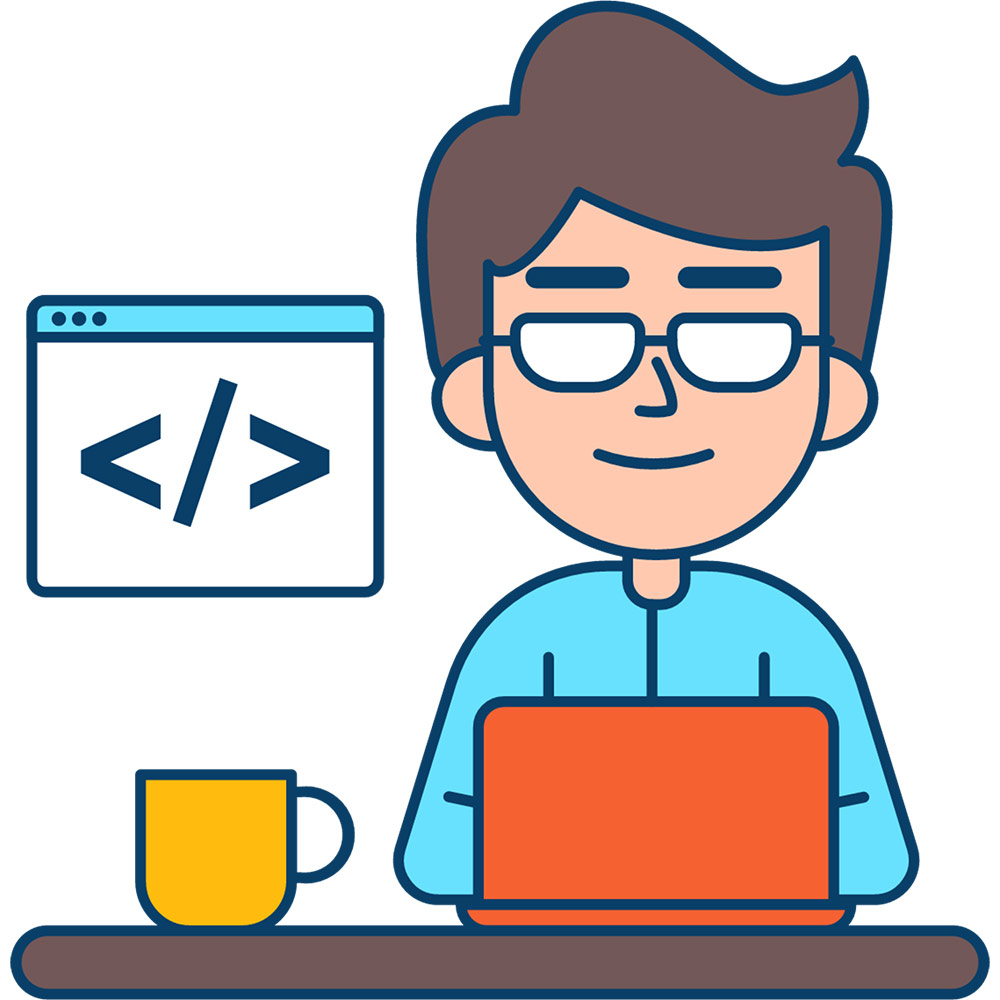
Front-end development plays a crucial role in the creation of captivating, user-friendly websites. Websites are often the first point of contact between businesses and their customers, the work of front-end developers is more important than ever. These talented professionals combine creativity and technical expertise to build the visual elements and interactive features that users encounter on the web. In this comprehensive guide, we will delve into the responsibilities, skills, tools, and education required to thrive as a front-end developer. By the end, you’ll have a clear understanding of the role front-end developers play in modern web development and the pathways available to pursue a successful career in this exciting field.
What Does a Front-End Developer Do?
In web development, a front-end developer is responsible for crafting the client-side interface of a website. This involves translating design concepts into functional web pages using a combination of HTML (Hypertext Markup Language), CSS (Cascading Style Sheets), and JavaScript. The front-end developer’s ultimate goal is to deliver an engaging user experience by optimizing web pages for speed, responsiveness, and ease of use.
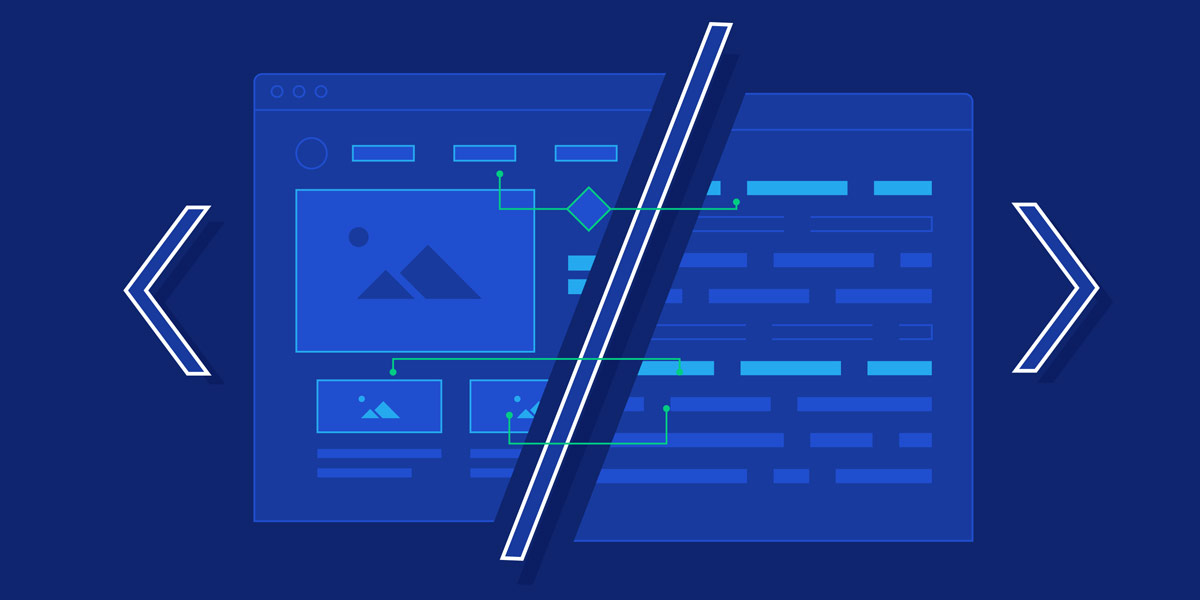
What Does a Front-End Developer Do?
Responsibilities of a Front-End Developer
Creating User-Friendly Web Pages
At the core of a front-end developer’s responsibilities is the creation of visually appealing and user-friendly web pages. This entails utilizing HTML to structure the content, CSS to style the layout and appearance, and JavaScript to add interactivity and dynamic functionality. By understanding user behaviour and employing best practices in web design, front-end developers have the power to create intuitive interfaces that captivate and engage visitors.
Collaborating with Back-End Developers, Graphic Designers, and UX Designers
Front-end developers often collaborate closely with other professionals in the web development process. They work hand-in-hand with back-end developers to integrate the front-end and back-end functionalities of a website seamlessly. This collaboration ensures that data is exchanged efficiently and that the website functions as intended. Additionally, front-end developers collaborate with graphic designers to implement visual elements and ensure brand consistency. Furthermore, they may also work closely with user experience (UX) designers to optimize the usability and accessibility of web applications, taking into consideration factors such as user flow, information architecture, and user interface design.
Optimizing Web Applications for Speed
Web performance is a critical aspect of a successful website. Users have high expectations when it comes to speed, and even a few seconds of delay can lead to frustration and abandonment. Front-end developers play a vital role in optimizing the performance of web applications. They employ various techniques to ensure fast loading times, such as optimizing image sizes, minifying code, and implementing caching strategies. By leveraging their expertise, front-end developers help create websites that deliver an optimal user experience.
Troubleshooting Technical Issues
In the complex world of web development, technical issues are bound to arise. Front-end developers possess the skills necessary to troubleshoot and debug problems related to coding and site performance. Whether it’s fixing layout inconsistencies, resolving JavaScript errors, or addressing compatibility issues across different browsers and devices, front-end developers are adept at identifying and resolving issues to ensure smooth website operation.
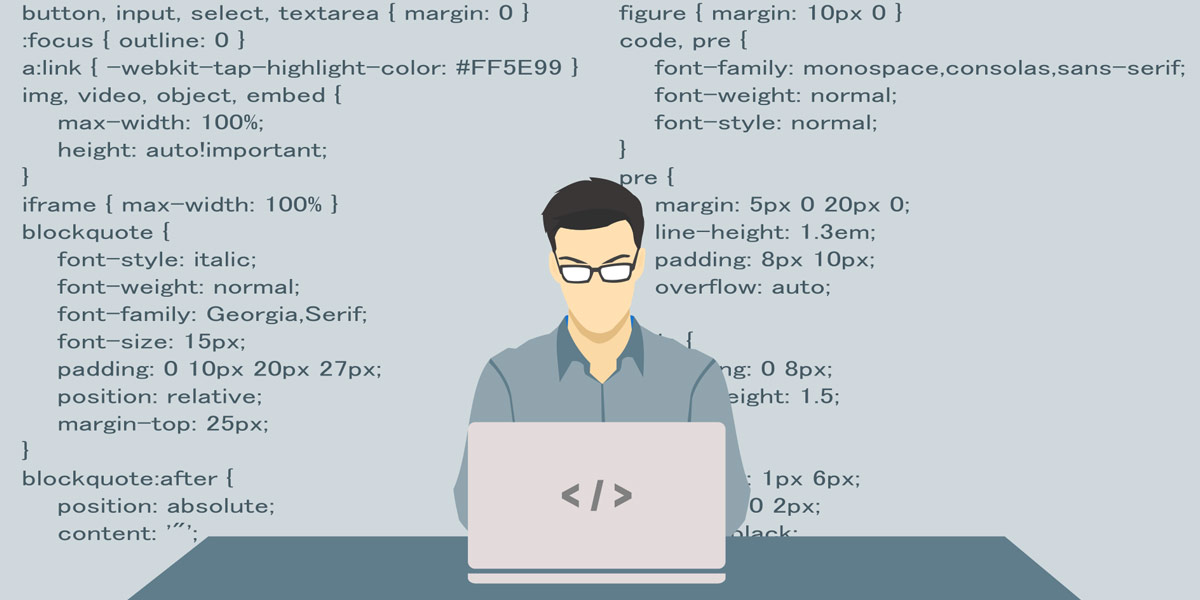
What Does a Front-End Developer Do: Responsibilities
Skills and Qualifications of a Front-End Developer
To excel in front-end development, individuals need to possess a specific set of skills and qualifications. Let’s explore the key attributes that contribute to success in this field.
Proficiency in Website Programming Languages
Front-end developers must possess a strong command of website programming languages such as HTML, CSS, and JavaScript. HTML is the foundation for structuring the content, CSS enables them to style and design web pages, and JavaScript adds interactivity and dynamic functionality. By mastering these languages, front-end developers can bring designs to life and create engaging user experiences.
Understanding of Website Design Principles and SEO Optimization
In addition to coding skills, front-end developers should have a solid understanding of website design principles, including layout, typography, colour theory, and responsive design. They must also be familiar with SEO (Search Engine Optimization) practices to ensure that websites are optimized for search engine visibility and ranking. By incorporating SEO best practices into their coding, they contribute to the overall online visibility and success of the website.
Strong Interpersonal Skills
Effective communication and collaboration are essential skills for front-end developers. They often work in cross-functional teams, requiring them to effectively communicate technical concepts to non-technical team members. Strong interpersonal skills enable them to work harmoniously with designers, developers, and other stakeholders, ensuring a seamless workflow and successful project outcomes.

What Does a Front-End Developer Do: Skills and Qualifications
Tools and Technologies Used by Front-End Developers
Front-end developers rely on various tools and technologies to streamline their work and enhance productivity. Let’s explore some of the key tools and technologies commonly used in the front-end development process.
Code Editors and Integrated Development Environments (IDEs)
Code editors and IDEs provide front-end developers with a feature-rich environment for writing, editing, and managing code. Popular code editors include Visual Studio Code, Sublime Text, and Atom. IDEs like WebStorm and IntelliJ IDEA offer advanced features tailored specifically for web development.
Version Control Systems
Version control systems, such as Git, allow front-end developers to track changes in their code, collaborate with others, and revert to previous versions if needed. Git also enables seamless collaboration with other developers and simplifies the process of deploying web applications.
Front-End Frameworks and Libraries
Front-end frameworks and libraries, such as React, Angular, and Vue.js, provide pre-built components and a structured approach to web development. They enable front-end developers to build complex web applications efficiently, improve code maintainability, and enhance overall development speed.
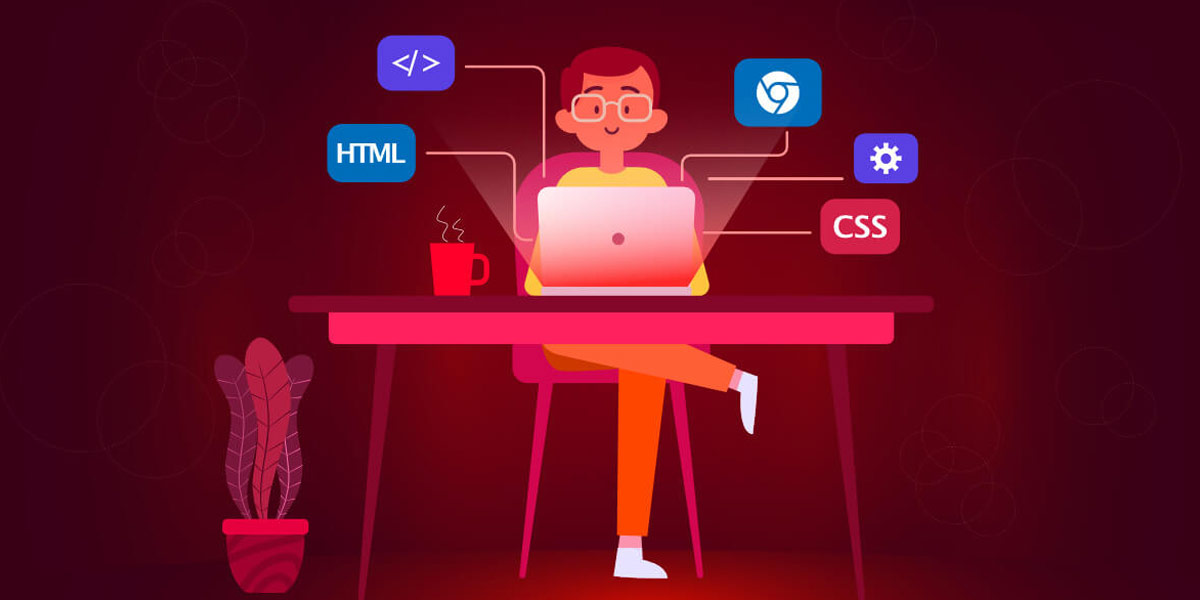
What Does a Front-End Developer Do: Tools and Technologies
Education and Training for Front-End Developers
While formal education is not always a requirement, certain educational paths can provide a strong foundation for front-end development. Let’s explore the various options available for education and training in this field.
Bachelor’s Degree in Computer Science or a Related Field
Many front-end developers hold a bachelor’s degree in computer science, software engineering, or a related field. Formal education provides a comprehensive understanding of programming concepts, algorithms, and software development methodologies. It also demonstrates a commitment to learning and acquiring the necessary skills for a career in front-end development.
Online Courses and Tutorials
Numerous online platforms offer courses and tutorials specifically tailored to front-end development. These resources provide practical knowledge and hands-on experience in areas such as HTML, CSS, JavaScript, and front-end frameworks. Online learning allows individuals to learn at their own pace and acquire industry-relevant skills without the need for a formal degree.
Bootcamps and Coding Schools
Coding boot camps and specialized coding schools offer intensive and immersive programs focused on teaching practical coding skills. These programs often emphasize hands-on projects, collaboration, and industry-relevant skills. Bootcamps are particularly popular for those seeking a career transition or accelerated learning experience.
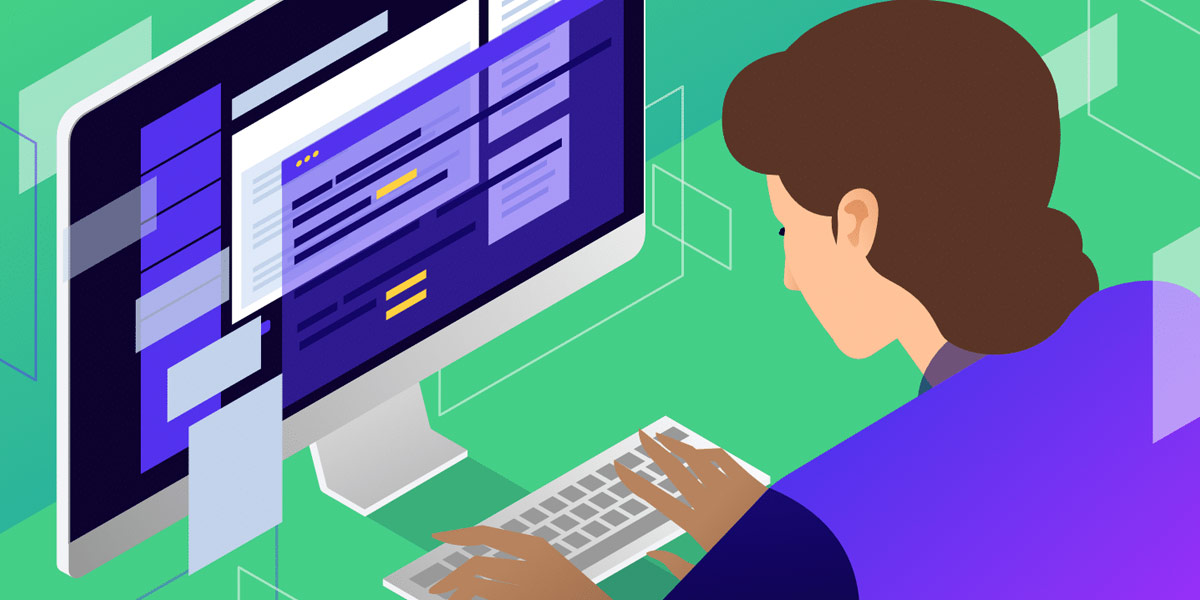
What Does a Front-End Developer Do: Education and Training
Conclusion
Front-end development is a vital aspect of web development, responsible for creating visually appealing and user-friendly websites. Front-end developers bring designs to life by leveraging their skills in HTML, CSS, and JavaScript. They collaborate with other professionals in the web development process, optimize web applications for speed, and troubleshoot technical issues. Possessing a combination of technical expertise, design sensibility, and strong interpersonal skills, front-end developers contribute to the creation of engaging and interactive web experiences.
In summary, front-end development offers a fulfilling and dynamic career path for individuals passionate about web design and user experience. Whether through formal education, online courses, or coding boot camps, aspiring front-end developers have a range of opportunities to acquire the necessary skills and thrive in this rapidly evolving field.
FAQs
What is a front-end developer?
A front-end developer is a professional responsible for creating the client-side interface of a website. They work with HTML, CSS, and JavaScript to build visually appealing and user-friendly web pages. Front-end developers focus on the user experience, ensuring that websites are engaging, responsive, and easy to navigate.
What are the responsibilities of a front-end developer?
The responsibilities of a front-end developer include:
- Translating design mockups into functional web pages using HTML, CSS, and JavaScript.
- Ensuring the website’s compatibility across different browsers and devices.
- Collaborating with back-end developers, graphic designers, and UX designers to implement website features and functionalities.
- Optimizing web pages for speed and performance.
- Debugging and troubleshooting technical issues related to front-end development.
- Staying updated with the latest web technologies and best practices.
What programming languages do front-end developers use?
Front-end developers primarily use three programming languages:
- HTML (Hypertext Markup Language): Used for structuring the content of web pages.
- CSS (Cascading Style Sheets): Used for styling and designing web pages.
- JavaScript: Used for adding interactivity and dynamic functionality to web pages.
What are the skills and qualifications required for a front-end developer?
To excel as a front-end developer, you need the following skills and qualifications:
- Proficiency in HTML, CSS, and JavaScript.
- Understanding of website design principles, including layout, typography, colour theory, and responsive design.
- Knowledge of front-end frameworks and libraries, such as React, Angular, or Vue.js.
- Familiarity with version control systems like Git.
- Strong problem-solving and debugging skills.
- Effective communication and collaboration abilities.
What tools and technologies do front-end developers use?
Front-end developers use various tools and technologies to streamline their work and enhance productivity. Some commonly used tools include:
- Code editors like Visual Studio Code, Sublime Text, or Atom.
- Version control systems like Git for code management and collaboration.
- Task runners and build tools like Gulp or webpack for automating repetitive tasks.
- Front-end frameworks and libraries like React, Angular, or Vue.js.
- Browser developer tools for testing and debugging web pages.
What is the difference between a front-end developer and a back-end developer?
The main difference between front-end and back-end developers lies in their areas of focus. While front-end developers work on the client-side interface of a website, back-end developers focus on the server-side functionality. Front-end developers deal with the visual and interactive aspects of a website, ensuring a smooth user experience. Back-end developers handle server-side logic, database management, and server configuration, ensuring the website’s functionality and performance.
What is the role of a front-end developer in website design?
Front-end developers play a crucial role in website design. They work closely with designers to transform design mockups into functional web pages. Front-end developers ensure that the design is implemented accurately, the user interface is intuitive and visually appealing, and the website is responsive across different devices. They collaborate with designers, back-end developers, and other stakeholders to create a seamless user experience.
How do front-end developers optimize website speed and performance?
Front-end developers employ various techniques to optimize website speed and performance, such as:
- Minifying and compressing CSS and JavaScript files to reduce file sizes.
- Optimizing image sizes and formats to improve loading times.
- Implementing caching strategies to store and retrieve frequently accessed data.
- Lazy loading images and content to defer their loading until needed.
- Utilizing browser caching to store static assets on the user’s browser.
- Implementing performance audits and optimizations using tools like Lighthouse or WebPageTest.
What are some common interview questions for front-end developers?
Here are some common interview questions for front-end developers:
- Can you explain the box model in CSS?
- How do you handle cross-browser compatibility issues?
- What is the difference between
nullandundefinedin JavaScript? - How would you optimize the performance of a web page?
- Can you describe the process of responsive web design?
- How do you organize your CSS code for better maintainability?
- What are some CSS preprocessors, and why would you use them?
- Have you worked with any front-end frameworks? Which ones?
- Can you explain the concept of event delegation in JavaScript?
- Have you used any build tools or task runners like Gulp or webpack?
What are some of the challenges faced by front-end developers?
Front-end developers may encounter several challenges in their work, including:
- Browser compatibility issues: Ensuring that web pages render consistently across different browsers.
- Responsive design: Designing and implementing websites that adapt seamlessly to different screen sizes and devices.
- Performance optimization: Balancing functionality and interactivity with fast loading times.
- Keeping up with evolving web technologies: Staying updated with new frameworks, libraries, and best practices.
- Debugging complex issues: Identifying and resolving bugs and compatibility problems in front-end code.
- Collaborating with diverse teams: Working effectively with designers, back-end developers, and other stakeholders with varying expertise and perspectives.

With over two decades of web design and development expertise, I craft bespoke WordPress solutions at FallingBrick, delivering visually striking, high-performing websites optimised for user experience and SEO.




